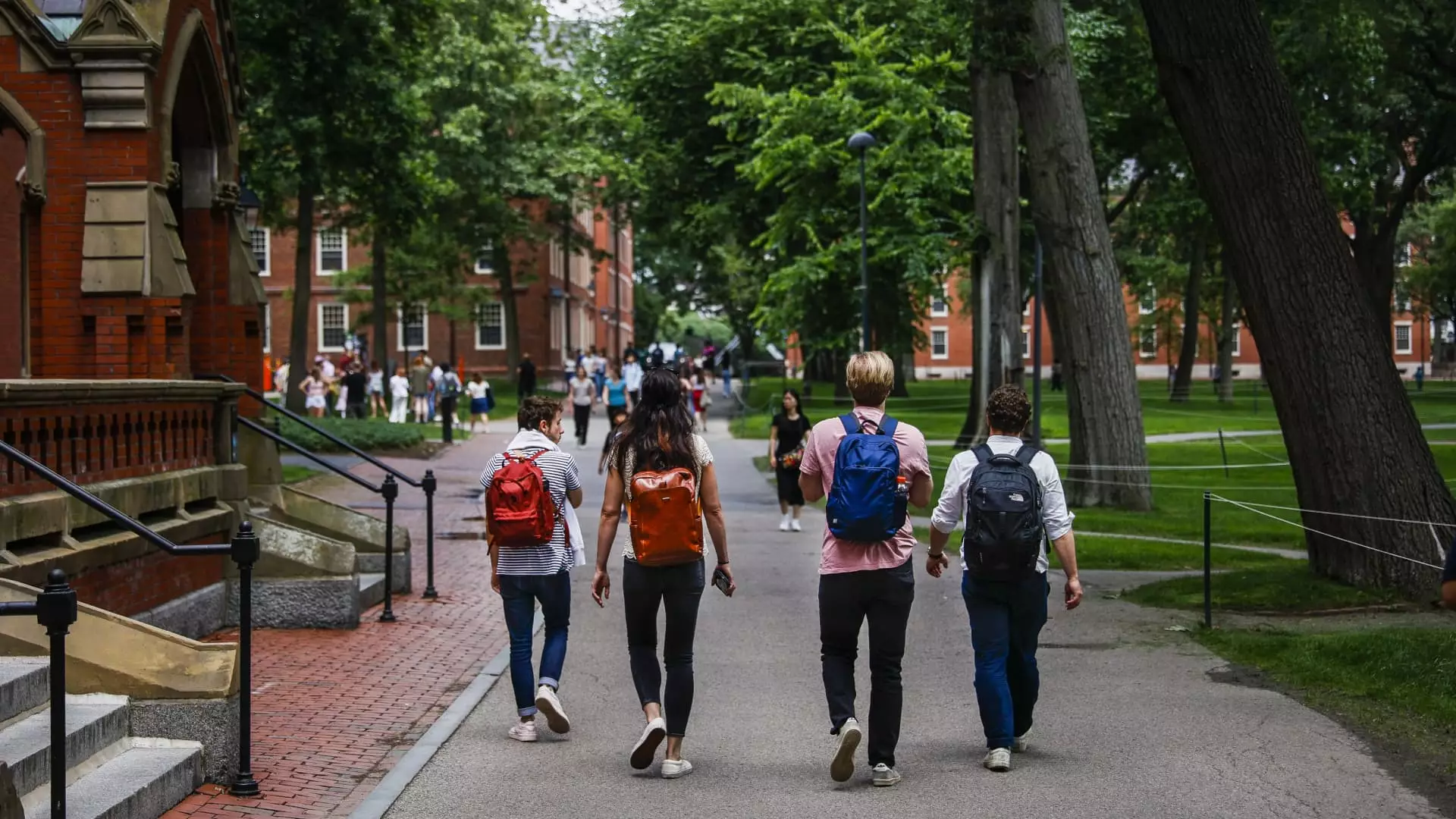In a spectacle that starkly illustrates the intersection of political theater and academic integrity, the Trump administration’s confrontation with Harvard University over international student visas threatens to ripple through the very fabric of the U.S. economy. This is not merely a localized skirmish; it is a declaration of war on the institutions that uphold the values of diversity and intellectual exchange. According to NAFSA: Association of International Educators, international students contributed an astounding $43.8 billion to the U.S. economy for the 2023-24 academic year alone. This figure encapsulates not just tuition fees, but also the fistful of dollars spent in the surrounding communities, thereby supporting local jobs and businesses.
Particularly in Massachusetts, where international scholars were responsible for nearly $4 billion in economic activity, the implications of potential enrollment restrictions become alarmingly clear. Harvard, often viewed as the pinnacle of academic achievement in the U.S., draws over 6,000 international students, comprising 27% of its total enrollment. This is a striking increase from 22.5% a decade ago. With such a substantial international presence, Harvard is not an isolated educational institution; it is an economic powerhouse that injects approximately $180 million into the Boston area through student expenditure.
The Importance of Diversity in Academia
Harvard’s international population does more than bolster the local economy; it enriches the educational experience for all students. Robert Franek, editor-in-chief of The Princeton Review, emphasizes how international students complement the student body, thereby enhancing the overall quality of education. However, the Trump administration sees these students through a narrow lens, focusing solely on nationalistic rhetoric rather than the potential benefits of a multicultural campus. The ban on international enrollment could be the death knell for not only Harvard but for countless institutions across America, many of which rely on foreign students who pay full tuition—a crucial revenue stream that cannot be easily replaced.
Economists like Bjorn Markeson posit that any disruption in Harvard’s operations will have a wider economic repercussion, as dollars do not remain stagnant. They flow through networks, influencing diverse sectors beyond academia. The fallout of cutting off international students would extend to local businesses, housing markets, and services that thrive on the patronage of these economically vital individuals.
A Clash of Ideologies
The escalating tensions between Harvard and the Trump administration spotlight a broader ideological clash centered on immigration and inclusion. Harvard’s refusal to bend to the administration’s demands on combating antisemitism underscores its commitment to academic freedom and inclusivity. While U.S. Secretary of Education Linda McMahon insists on a more aggressive stance against perceived antisemitic activities on campus, the argument seems alarmingly one-sided and opportunistic.
In fact, the administration’s actions appear less motivated by genuine concern for combating hate and more by a desire to exert control over prestigious institutions that challenge its dogma. The temporary restraining order issued by a federal judge effectively paused the Trump administration’s ultimatum, highlighting a judicial acknowledgment of the potential overreach at play. The complexities of this situation evoke concerns that the administration may be wielding national security as a pretext for curtailing academic freedom.
Looking Forward: A Critical Time for Higher Education
As both parties brace for the unfolding saga, Harvard finds itself at a crossroads, grappling with plans to safeguard its international student body amid uncertain policies. The ongoing back-and-forth serves as a reminder that academia should be a realm free from the malaise of political maneuvering. For institutions like Harvard, which are quintessentially mirrors of our diverse society, failing to adapt to these external pressures could result in an unprecedented brain drain, ultimately constraining the intellectual capital that has long fueled American innovation and progress.
As we navigate through these stormy waters, it is crucial that we champion the very values that enrich our educational landscapes: diversity, inclusivity, and the free exchange of ideas. The events at Harvard are emblematic of larger systemic issues, and as citizens, we must remain vigilant in advocating for higher education that embraces cultural multiplicity rather than stifling it.

